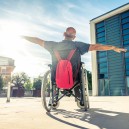How to Become a Counselor in Minnesota
How Do I Become a Licensed Professional Counselor in Minnesota?
 The Minnesota Board of Behavioral Health and Therapy provides licensure for two different categories of professional counselors: Licensed Professional Counselor (LPC) and Licensed Professional Clinical Counselor (LPCC). One major difference between the two is that the LPCC requires twice as many hours of supervised post-degree clinical practice. In addition, the work done by those holding the LPC license in Minnesota may not be recognized as insurance reimbursable. The laws and regulations continue to evolve in Minnesota in an effort to improve health and lower health care costs.
The Minnesota Board of Behavioral Health and Therapy provides licensure for two different categories of professional counselors: Licensed Professional Counselor (LPC) and Licensed Professional Clinical Counselor (LPCC). One major difference between the two is that the LPCC requires twice as many hours of supervised post-degree clinical practice. In addition, the work done by those holding the LPC license in Minnesota may not be recognized as insurance reimbursable. The laws and regulations continue to evolve in Minnesota in an effort to improve health and lower health care costs.
What Are the Requirements to Become a Counselor in Minnesota?
Even though the health care scene continues to shift in Minnesota, there is no lack of people in need of quality professional counseling. Future counselors will need the experience and expertise they receive on their way to licensure in order to provide the best mental health services possible to the individuals, couples, and families of Minnesota. Not only that, once a future counselor is licensed they can come alongside other licensed counselors as part of the Minnesota Counseling Association and continue the advancement of the helping professions in Minnesota.
A graduate degree at the master's level or higher from a program accredited by the Council for Accreditation of Counseling & Related Education Programs (CACREP) is required for either the LPC or LPCC license. Currently, four different licensing exams are accepted by the Minnesota Board of Behavioral Health and Therapy. The National Counselor Exam (NCE), the National Clinical Mental Health Counseling Examination (NCMHCE), the Certified Rehabilitation Counselor Examination (CRCE), and the Examination for the Professional Practice of Psychology (EPPP). 2,000 hours of supervised post-degree clinical practice is required for the LPC, while 4,000 hours are required for the LPCC. These requirements have been set up by the Board of Behavioral Health and Therapy in order to ensure a standard of competence and ethical practice amongst Minnesota’s professional counselors.
What Are the Supervised Experience Requirements t0 Become a Counselor in Minnesota?
The LPC license requires future counselors to be supervised for their first 2,000 hours of practice. The LPCC license requires an additional 2,000 hours or 4,000 hours total of supervised practice. The 4,000 hours of earned experience must include no less than 1,800 hours of direct client contact. Along with the LPC or LPCC application, applicants must include a supervision plan. Supervised hours may begin to accrue before an applicant is approved, as long as they are working alongside an approved supervisor listed in the submitted supervision plan.
The Board of Behavioral Health and Therapy requires applicants pursuing the LPC license to log two hours with supervision for every 40 hours of professional practice, which equals 100 total hours. While the LPCC license requires two hours with supervision out of every 40 hours of professional practice, a total of 200 hours. In addition, no less than 75% of the supervision needs to be in-person and 50% individual.
Whether pursuing the LPC or LPCC, dedication to good record keeping on the part of the supervisor and the licensee will ensure a timely review and issuance of a license.
What Are the Examination Requirements to Become a Counselor in Minnesota?
The Minnesota Board of Behavioral Health and Therapy accepts a passing score on four different exams. The National Counselor Exam (NCE), the National Clinical Mental Health Counseling Examination (NCMHCE), the Certified Rehabilitation Counselor Examination (CRCE), and the Examination for the Professional Practice of Psychology (EPPP).
The NCE consists of 200 multiple choice questions designed to assess knowledge, skills, and abilities of licensure candidates. You will receive your score within 8 weeks of the examination. Study guides are available via the NBCC.
The NCMHCE consists of 10 simulated clinical mental health counseling cases that are designed to sample a broad area of competencies. You will receive your score within 6 weeks of the examination. Study guides are also available via the NBCC.
The CRCE consists of 175 multiple-choice questions administered during an allotted 3 ½ hours within an 8-day testing window. You will receive your score within 5 weeks of the examination. A practice test is available at CRCcertification.com.
The EPPP consists of objective multiple choice questions arranged in 175 scored items and 50 pre-test items. Test scores are available within 3 business days of the 15th day and the last day of the month. A practice test is available from the Association of State and Provincial Psychology Boards.
Note: For more information on how to become a counselor in the state of Minnesota, please visit the Board of Behavioral Health and Therapy.
Counseling Career Outlook in Minnesota
According to the Bureau of Labor Statistics, average professional counselor’s salaries in Minnesota range between $42,320-$71,330. Specific salaries depend on the kind of license, the type of counseling, whether care is being administered in a private practice or part of a state program, and many other factors. Regardless, whether a future counselor is seeking an LPC or an LPCC license they can expect a solid salary upon receiving their license to do the work they love, helping the people of Minnesota live healthier and happier lives.
Schools with Degree Programs Accepting Students from Minnesota
Additional Resources for Minnesota Applicants:
- Minnesota Psychologist Licensing
- Minnesota Social Work Licensing
- Minnesota Marriage and Family Therapist Licensing
- Explore Additional Counseling Careers
2022 US Bureau of Labor Statistics job market trends and salary figures for educational, guidance, and career counselors, marriage and family therapists, substance abuse, behavioral disorder, and mental health counselors, rehabilitation counselors, and counselors (all other) are based on national data, not school-specific information. Conditions in your area may vary. Data accessed August 2023.





























